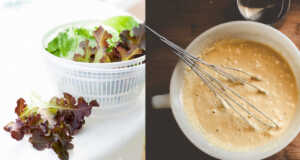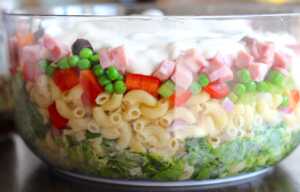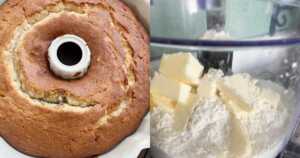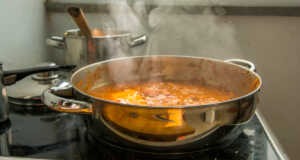I know what you’re thinking; it’s pasta! Practically the easiest meal to make! Pasta is, indeed, one of the easiest meals to make. It’s also an easy meal to make mistakes on, believe it or not. Sure, you can still have a perfectly fine pasta dish even if your process and timing are a bit off, but why not take a few minutes to learn a few tips to take your pasta game to the next level?
Putting Pasta in Cold Water
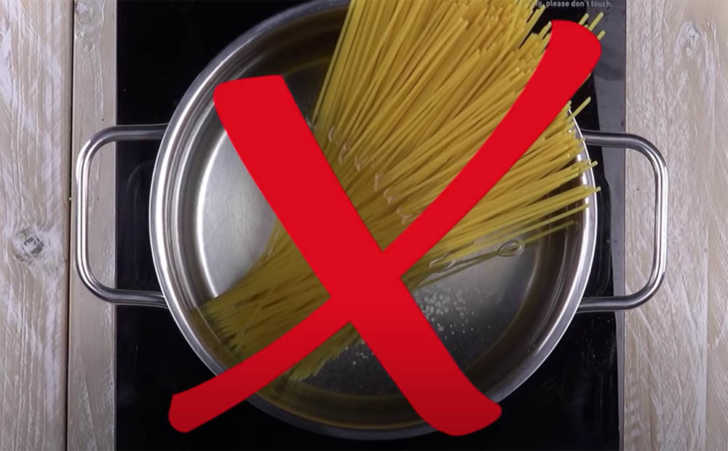
My husband and I have differing views on this topic, and I am so glad to have done this research so I can prove him wrong…all in love, of course. My husband cooks pasta like rice – he puts the noodles into cold water and lets them heat up and then sit in the boiling water for a bit before draining. I, on the other hand, typically heat up the water first and then add the pasta.
Turns out, boiling the water first is the correct way to cook pasta. By letting it sit in the cold water first, you’re essentially soaking the dried noodles without cooking them, which leads to mushy noodles. Another key to cooking perfect pasta is making sure the noodles are submerged as soon as possible. As you probably know, long pasta like spaghetti and fettuccine won’t be able to soften and submerge in the cold water, thus leaving your pasta unevenly cooked.
Using Too Small of a Pot
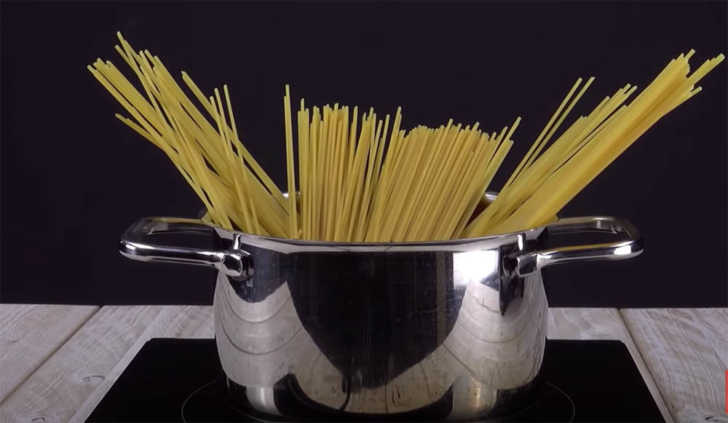
I’ll admit, I’m guilty of this all the time. Part of it is that I still can’t seem to make the appropriate amount of pasta for my family. It seems where pasta is concerned, I’m determined to make enough for an army.
Aside from portion control, one thing that helps pasta cook faster and more evenly is using a big pot. The bigger the better. This helps the water boil faster as well as ensures the noodles get submerged into the hot water faster.
Salting the Water Too Early
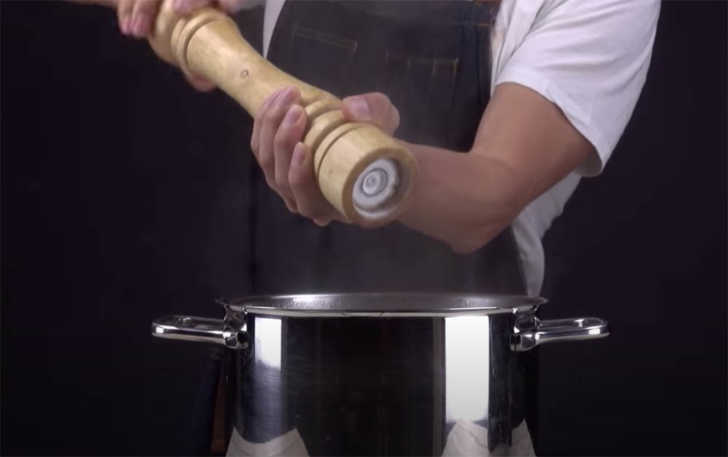
You might be surprised to discover that salting pasta water is a highly debated topic in some circles. Some believe that salting the water early helps the sodium to permeate the water and make it boil quicker. Others say that salt should be added at the same time as the pasta. So which is it?
We’re going with salting the water along with adding the pasta. The salt actually raises the boiling point of the water, thus actually increasing the time it takes to boil. Now, how much salt should you add? More than you might think! Most people make the mistake of not adding enough salt. Remember that the majority of the salt will remain in the water once you strain the noodles.
Adding Oil
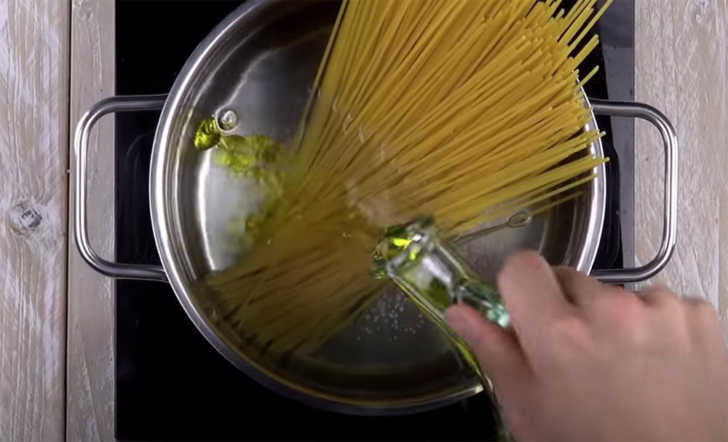
Let’s get right to the point with this one. Don’t add oil to your pasta. Some people think that adding oil keeps the pasta from sticking together, but all it really does is make the pasta greasy. Why does greasy pasta matter? The sauce will slide right off. No one wants that! So, unless you’re cooking massive batches of pasta, go ahead and skip the oil.
Wrong Cook Time
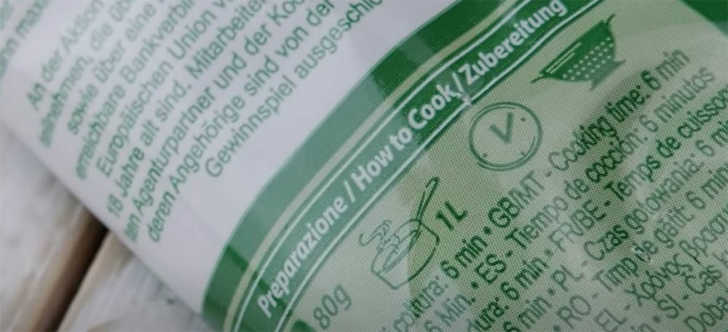
Here’s another difference of opinion between my husband and I. (Who knew so many of our conversations centered around pasta preparation?!) My husband has more of a “go with your heart” mentality when it comes to cook times, whereas I always double-check the recommended cook time. This sums up many other areas of our lives as well, but I digress.
Turns out we’re both wrong! Cook the pasta for 1-2 minutes less than the package directions. Finish cooking the pasta in the sauce you probably have heating up on the stove. This will make for a rich flavor that cooks right into the noodle!
Not Saving the Water
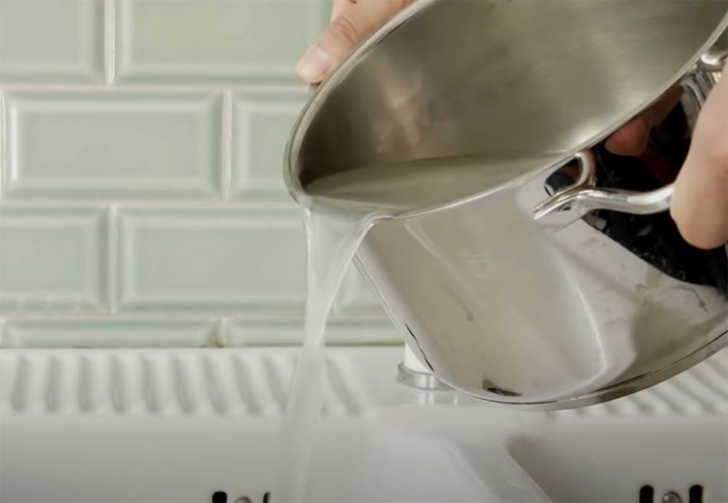
It may sound strange, but you shouldn’t drain all of the water out of your pot. Save about a half cup of the starchy, sodium-rich water and pour it in with the pasta now cooking in the sauce. The added starch is what gives pasta that nice, silky-smooth finish.
Rinsing Pasta
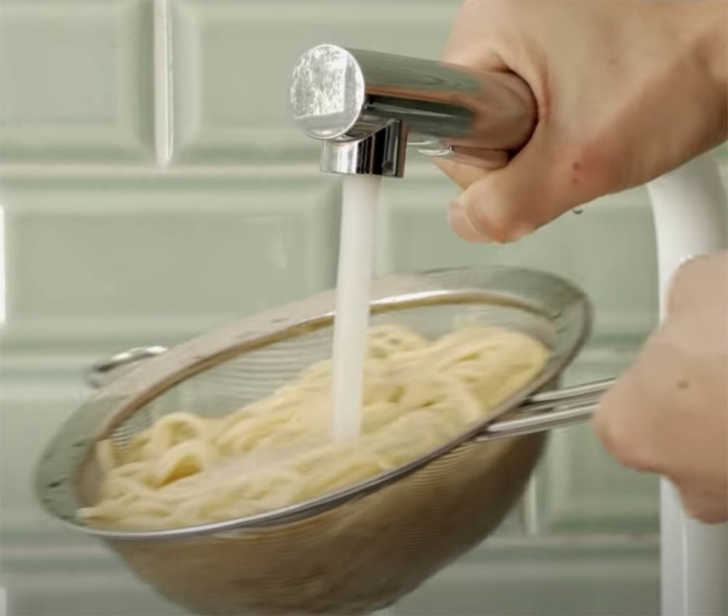
Lots of people rinse their pasta once it’s drained. I’ve moved away from doing this, but sometimes those old habits die hard, and I find my strainer under the faucet before I even realize it.
Running water over your noodles not only makes them lukewarm, but it washes away the salts and starches from the water it’s been boiling in. As mentioned above, the starch and sodium play an important role in the texture and overall flavor of your pasta dish!
See more tips and recipe ideas in the video below!
